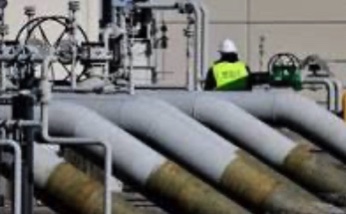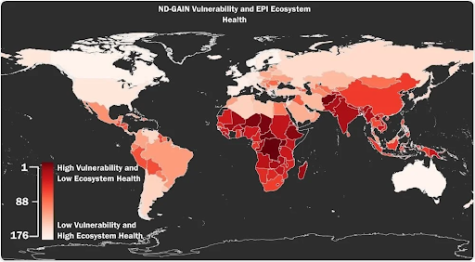Geopolitics effects on the environment

On the 26th of September, 2022, two pipelines that ship Russian natural gas was struck by underwater explosives that caused damage to roughly 50 meters/146 feet sections of pipe. This sabotage caused the owner, Gazprom, to indefinitely shut down the pipeline. In the interim, approximately 100,000-400,000 tonnes of methane leaked out of the pipe and polluted the surrounding natural environment. To date, this is the biggest leak of natural gas ever recorded. To put this in perspective, the biggest leak in US history occurred in 2015 and exposed 90,000 tonnes of methane gas.
Many western countries have responded to this by stating that the incident was an act of sabotage by Russia. Russian politicians, however, claim that the United States is to blame. Both the US and Russia have been involved in a proxy war similar to the ones seen during the Cold War. After Russia invaded Ukraine in February, Nato was quick to put sanctions on Russia’s economy, which affected Russia’s means to earn streams of income to pay for the war. However, several European countries refused to stop purchasing Russian-produced oil. Europe is Russia’s biggest oil importer, accounting for roughly 45% of fat burned in Europe. Because of this high demand, Russia has not backed down from threatening to shut off the two pipes that deliver the majority of natural gas needed for heating during the winter. While Europe has been gradually switching off this dependency, they still needed gas from Russia, which Putin has taken advantage of. Russia has intentionally stopped producing oil to pressure other countries to support Russia and thus help them win the war. This decrease in supply caused inflation and placed a heavy economic burden on everyday citizens in Western countries. This is why some parties have taken a keen interest in the two Nord stream pipelines; this has raised concerns that foreign powers who wish to remove Russian oil from circulation might sabotage these pipelines. Whatever one’s political views are, one commonality can be agreed on: the environmental impact of these events is rarely heard by the voices that suffer the most.
These voices include those of animals and other wildlife that call the Baltic Sea their home. In 2010 during the BP Gulf incident, roughly 250,000 tons of methane gas and 205.8 million gallons of crude oil spilled into the Gulf, with only 25% of that being reclaimed, which left 154 million gallons of oil and 2 million gallons of methane dispersed over the Gulf. The effect was disastrous; more than 82,000 birds, 25,900 marine animals, and an unknown number of fish were affected or killed. What’s bad about this is that when tons of methane is released into the air or sea like in this incident, concentrations of O2 go down as methane displaces oxygen in the air. This can be detrimental to animals in the water as they will suffocate to death from the lessened availability of oxygen. In addition, more than 5% concentration of methane in the air can increase the possibility of an explosion as methane is inherently flammable/explosive. Henceforth ships have been restricted from sailing closer than 5 Nautical Miles from the nearest methane leak. It is too early to get any trustworthy information on the amount of death and destruction this leak will pose. But we can compare it to the Gulf incident in terms of sheer amounts of gas released into the air and ocean, which infer that many animals will die.
Sadly, the way this all plays out quite simply can be summed up as a chess game. Geopolitics is about politics and money, and the unfortunate but honest truth is that innocent animal, wildlife, and everyday citizens are pawns in the game.
Sources:
- https://www.politico.eu/article/8-thing-know-environmental-impact-unprecedented-nord-stream-leak/
- https://www.biologicaldiversity.org/programs/public_lands/energy/dirty_energy_development/oil_and_gas/gulf_oil_spill/a_deadly_toll.html
- https://www.bbc.com/news/world-europe-63297085
- https://www.theguardian.com/business/2022/oct/18/nord-stream-1-first-underwater-images-reveal-devastating-damage











Craig Ennis • Nov 7, 2022 at 2:01 pm
Very insightful.